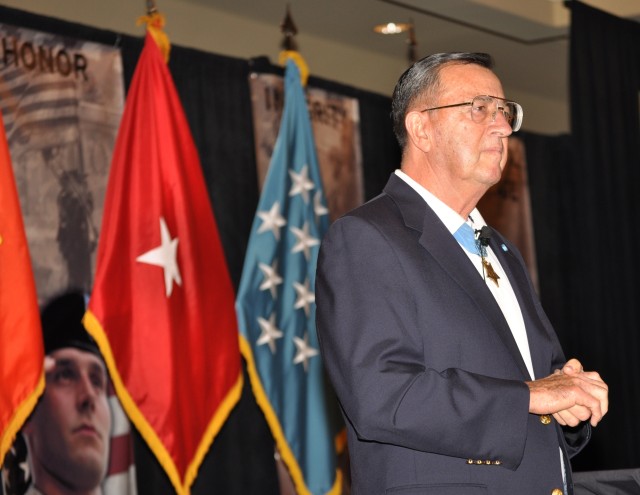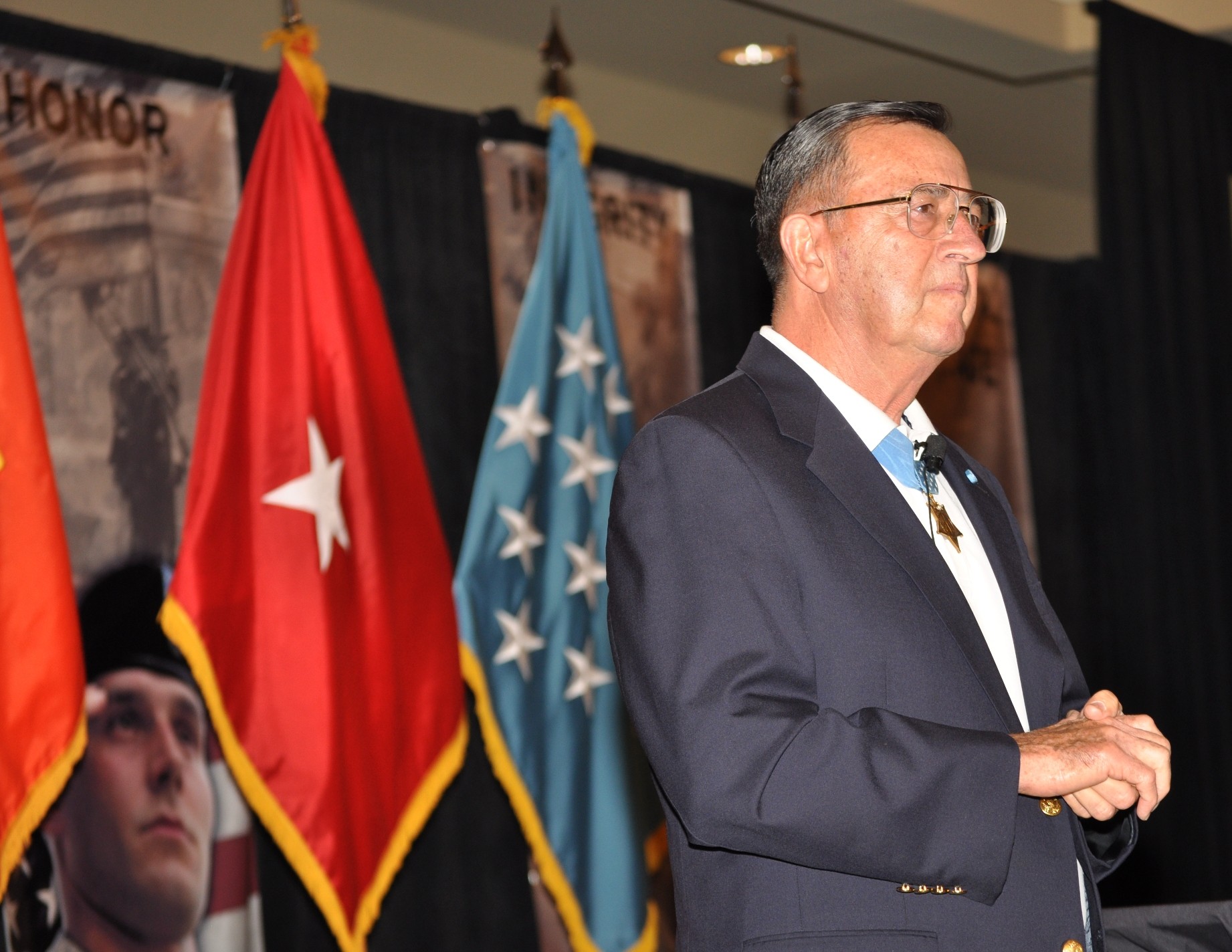PHOENIX - Walking up on stage, retired Marine Col. Jay Vargas gently takes hold of Old Glory and gives her a kiss. He has earned that right.
His voice is strong when he talks to the noncommissioned officers attending the Worldwide Retention Training Seminar. He looks each of them in the eye with a smile that lets you know there is an underlying strength. He speaks directly and pulls no punches, and his words and jokes are lightly sprinkled with risquAfA language; but that comes from being a Marine.
It's only when he starts to speak of his Marines - the ones who fought beside him in Vietnam at the three-day battle at Dai Do - do you see another emotion on his face.
The tone of his voice changes as well. His voice quivers slightly when he speaks of carrying his wounded battalion commander more than a hundred yards, when he speaks of the young man laying against a tree who just had his arm sheared off by shrapnel, and when his senior NCO took a rocket-propelled grenade to the chest. His voice is then tinged with irony as he recalls the events that led him to crossing 700 yards of rice paddies defended by enemy machinegun nests.
"It was 'hey-diddle-diddle up the middle'," Vargas said, interjecting a little humor. "There was no choice."
He speaks with a hint of disbelief as he recalls leading a small platoon to assault the defending machine gun nests... and realizing by the time he got there he was by himself.
"Lo and behold, I saw I was by myself," Vargas said shaking his head. "By then, I couldn't stop. The adrenaline wouldn't let me."
He doesn't recount his own actions, but speaks with awe as he describes 18- and 19-year-old Marines engaged in hand-to-hand combat when the ammunition ran out, using mounted bayonets, helmets, rocks and any other weapon they could get their hands on. Vargas speaks with respect of the opposing commanders whose men were very much in the same situation - except they had much larger numbers of soldiers.
Of the 170 or so Marines who went in, 38 came out and all were wounded including Vargas.
It was Vargas' actions that day - taking out three machinegun nests, carrying out several more wounded and being wounded himself - which earned him the Medal of Honor.
But his story does not end there. His own internal battle has prompted him and many other Medal of Honor recipients to fight what he calls "an epidemic" in the military services that has gained a lot of attention - in the Department of Defense, the media and American society.
Today, Vargas and others are taking steps to stem the tide of suicides in all the services. As part of the "Speak Out! Save Lives" program, many of the nation's greatest heroes have put together public service announcements, encouraging service members and family members to come forward, seek and receive help they need without the fear of stigma associated with mental health treatment.
"It's OK to come forward if you have a problem," he said.
Additionally, Vargas and others are visiting wounded service members at Walter Reed and Warrior Transition Units to provide counseling and support to those who need it.
But Vargas knows he can't do it without help, so he urged the assembled career counselors to do their part in helping to stem the rates of suicide. With the high operational tempo and frequent deployments, career counselors are often very close to the Soldier... the one who may need help right now.
"When you're interviewing - look at them in the eyes and see if there's a problem," Vargas said.
To a standing ovation, Vargas leaves the same way he walked onto stage... and kisses Old Glory on the way out. Again, he's earned that right.
Related Links:
Army G-1 Suicide Prevention website


Social Sharing